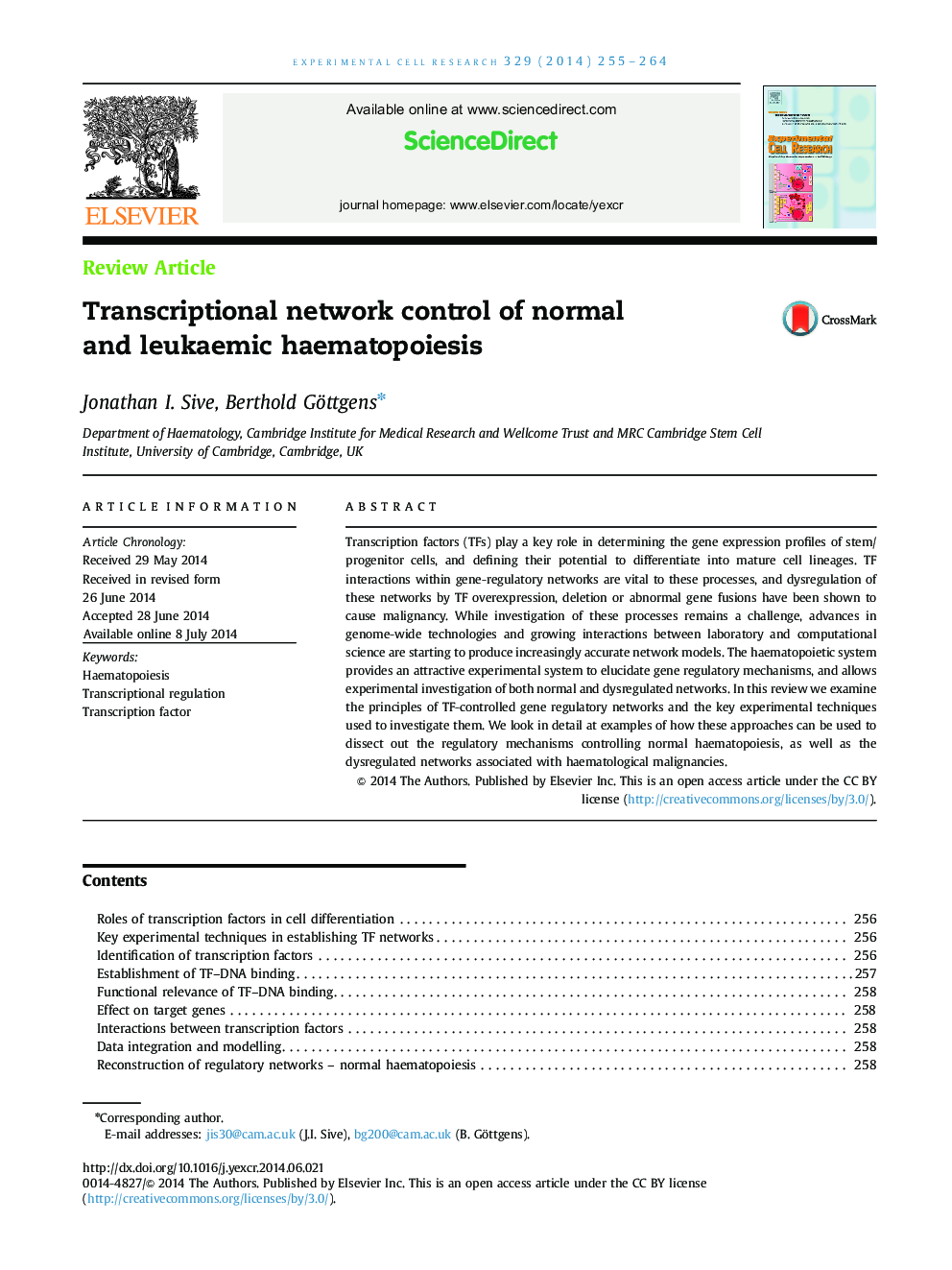| Article ID | Journal | Published Year | Pages | File Type |
|---|---|---|---|---|
| 10903959 | Experimental Cell Research | 2014 | 10 Pages |
Abstract
Transcription factors (TFs) play a key role in determining the gene expression profiles of stem/progenitor cells, and defining their potential to differentiate into mature cell lineages. TF interactions within gene-regulatory networks are vital to these processes, and dysregulation of these networks by TF overexpression, deletion or abnormal gene fusions have been shown to cause malignancy. While investigation of these processes remains a challenge, advances in genome-wide technologies and growing interactions between laboratory and computational science are starting to produce increasingly accurate network models. The haematopoietic system provides an attractive experimental system to elucidate gene regulatory mechanisms, and allows experimental investigation of both normal and dysregulated networks. In this review we examine the principles of TF-controlled gene regulatory networks and the key experimental techniques used to investigate them. We look in detail at examples of how these approaches can be used to dissect out the regulatory mechanisms controlling normal haematopoiesis, as well as the dysregulated networks associated with haematological malignancies.
Related Topics
Life Sciences
Biochemistry, Genetics and Molecular Biology
Cancer Research
Authors
Jonathan I. Sive, Berthold Göttgens,
